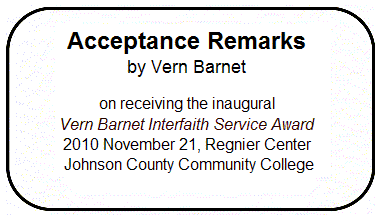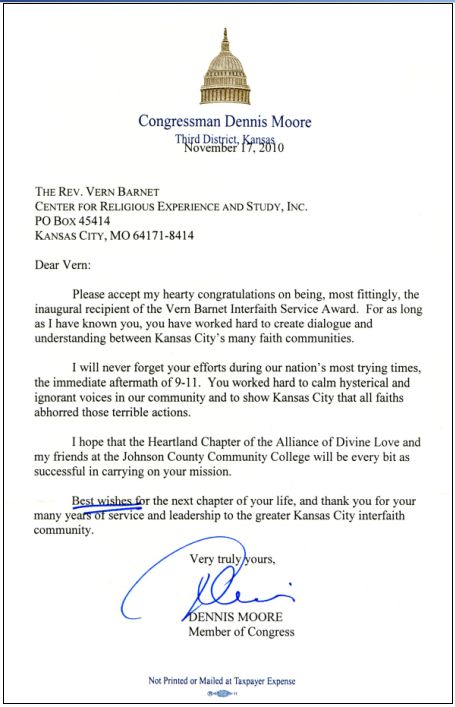
|
|
|
CRES is a 501(c)(3) organization promoting understanding of all faiths through teaching, writing, and consulting. |
 THIS DAY of Indian summer and the joys of having all of us of every faith around the table in friendship, with our international guests: we rightly observe this most American of festivals, Thanksgiving. Religion and Freethinking have three intermingled sacred components, wonder, gratitude, and service. From experiences of wonder flow a need to give thanks for them and all that supports them. This gratitude is mature only when it becomes service to others. Today is a time of economic stress and political corruption; and religious prejudice is enflamed by ignorance and fanned deliberately for partisan gain. People are hurting, folks are oppressed, and ignorance darkens our civic life. When we are threatened, it is not easy to feel wonder. When we are hungry or deprived of our rights, giving thanks is difficult. When we are in need, serving others may be far from our minds. But the legend of the first American Thanksgiving recalls the hardships of the Pilgrims' voyage and the first winter, from which only half of them survived, survived on only five kernels of maize a day. Yet somehow America itself has survived. We have repented the slaughter of Indians. We have freed slaves, given women the vote, finally elected Jews and Catholics, and now Muslims, into office; and are moving toward equal rights in the military and in marriage for all citizens. We have become the most religiously diverse nation on earth. We grateful for that. Every faith has stories of hardships and triumphs, and the theme of giving thanks is universal. So it was 26 years ago when folks of sundry faiths gathered at this first Thanksgiving Sunday Ritual Meal to give thanks for the deepening of our own faiths through the friendships we were making with each other. From that eventually developed the Interfaith Council and other groups and activities whose mission is guided by the question What is sacred? What is so important that my life depends upon it, that I would die for it? And what may I do to understand, honor and share it? This guiding question leads to awe, thanksgiving, and service. Together we have learned that the Primal faiths are especially equipped to help us find the sacred in the world of nature; that the Asian religions have special techniques to lead us to the sacred within, and the Monotheistic traditions teach us about the sacred revealed in the history of covenanted community. Because we've done our work together, we've served others. Two examples: § When CBS wanted to see how a community successfully dealt with 9/11, the network came here for their broadcast special. § When Harvard University's Pluralism Project and Religions for Peace at the United Nations Plaza wanted a community for rich field trips to various religious sites for the nation's Interfaith Academies, they came here. And our sacred interfaith connection shows in crises,
as when a Jewish acquaintance called a Muslim acquaintance on 9/11 and
asked if he was OK, and when we came to Johnson County Community College
a few days later and lit candles to be a witness against fear and for safety
and understanding.
These many years, from that guiding question,
What
is sacred? I have lived out of a sense of awe in the majesty of nature,
the mystery of personhood, and the
hope of human community. From this
awe,
and for the gifts of the American Constitution, and the richness of the
faiths now about us, this
gratitude
led to a desire to serve. I know I
have not always been worthy of the tasks before us, and my own personal
limitations and failures have sometimes impeded our progress. Still, I
am assured of the pleasure of your company and the honor of your friendship.
|

Vern and James R Houx Jr, CRES secretary
The award was presented at the 26th annual Thanksgiving Sunday Ritual Dinner, November 21, 2010, at the Regnier Center, Johnson County Community College, co-sponsored by the Heartland Chapter - Alliance of Divine Love and the Johnson County Community College Office of International Education and Office of Diversity, Equity, and Inclusion in cooperation with the interfaith community with meeting support from All Souls UU Church and cooperative partners The Greater Kansas City, Interfaith Council, 3HO Kundalini Yoga Center, Baha'i Faith Community of Greater Kansas City, Community Christian Church, Crescent Peace Society, Cultural Crossroads, Culturally Speaking, Festival of Faiths, , Hatebusters, Hindu Temple and Cultural Center, Rime Buddhist Center, Sikh Dharma of Kansas City, Urantia Book Fellowship, and Vedanta Society. |
